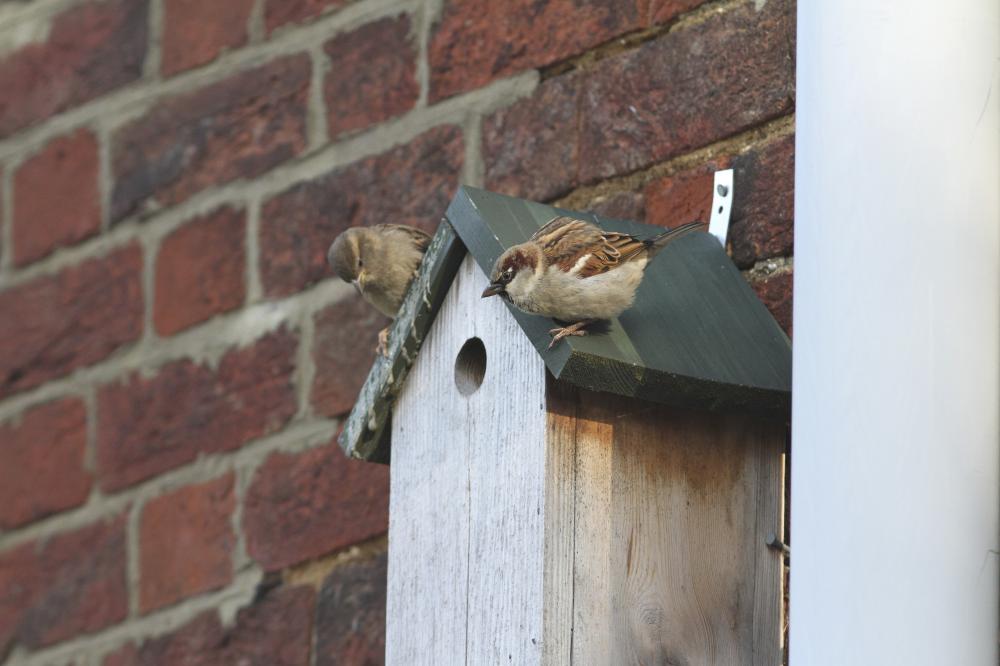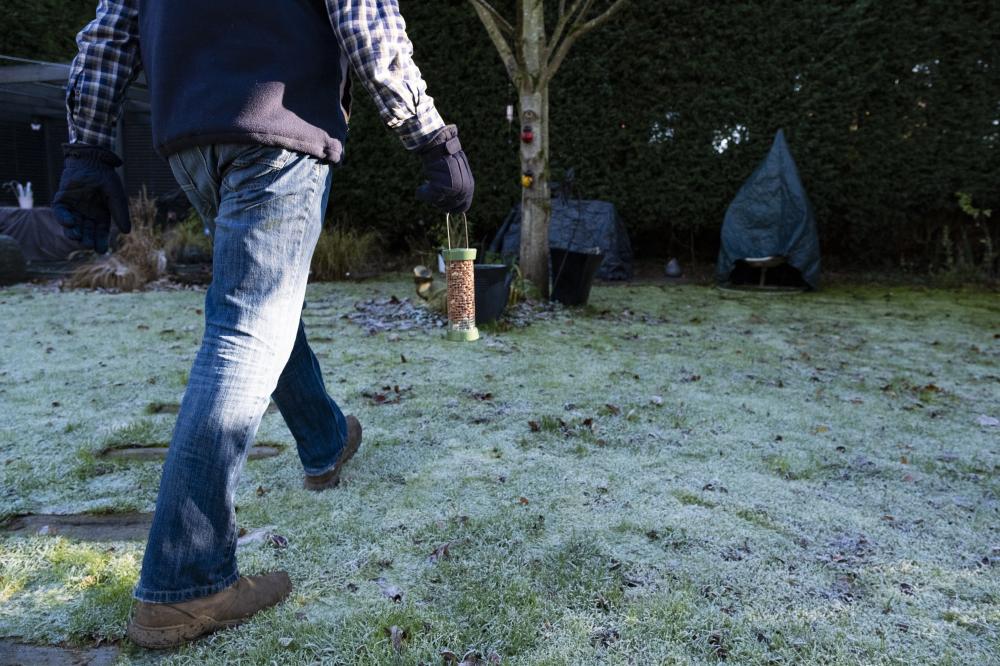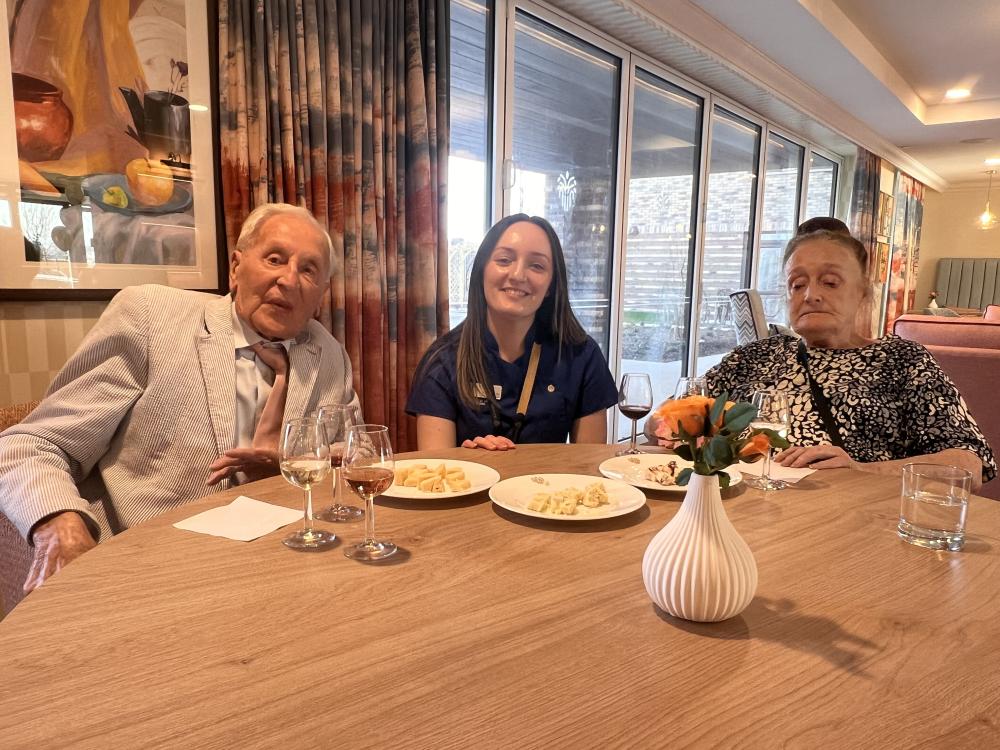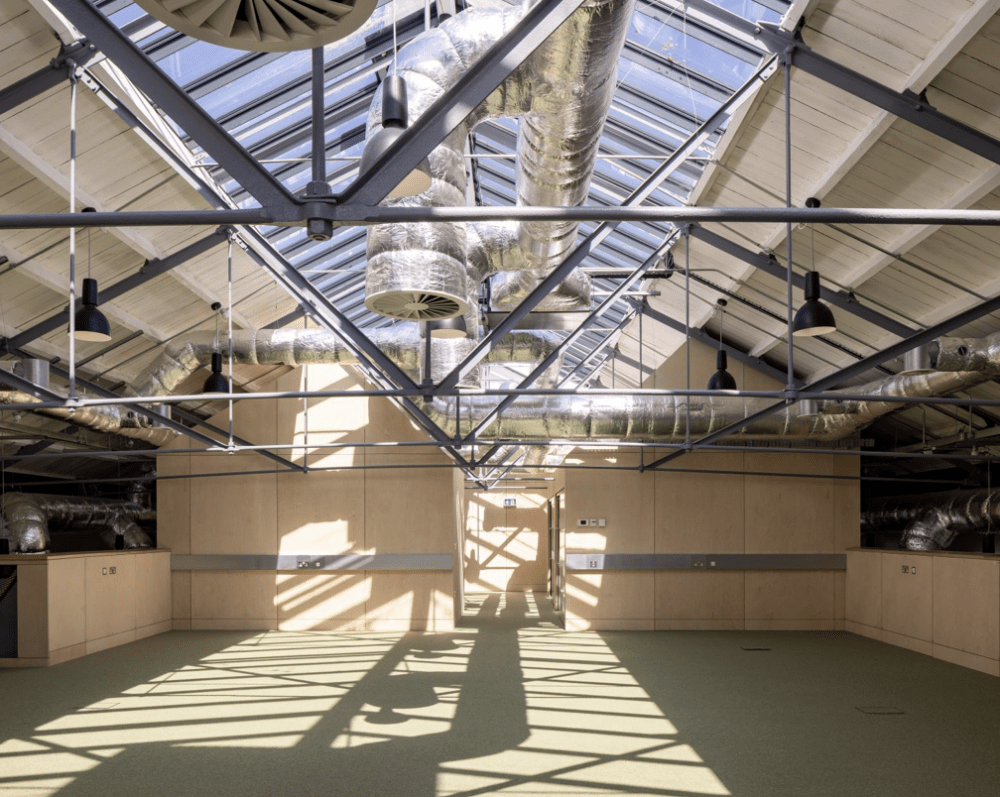Barratt David Wilson Homes South West anc Barratt Homes Bristol are working to inspire homeowners to create their own haven for wildlife as temperatures plunge.
UK gardens and balconies cover 4,000 square kilometres, more than the entire county of Wiltshire county and is space that with a little care and attention could make a big difference for nature.
This could be as simple as introducing nest boxes and bird feeders to planting wildlife-friendly flowers.
The housebuilders, whose developments include homes in Swindon's Wichelstowe neighbourhood, have partnered with the RSPB to create three top wildlife-friendly tips you can incorporate into your garden when it’s colder.
Advice includes:
Rain or shine, we've got birds covered
When the weather takes a turn, birds need shelter to keep warm and dry. Nest boxes are the perfect option for small birds and are a popular spot for them during colder nights, with space to cosy up together for communal warmth.
Creating a deadwood or leaf pile in your garden can be used for shelter and to keep warm. Across the ‘West’ region during 2024, the two housebuilders created 39.2ha of green space through public open space and private gardens and invested in 2,027 priority species enhancements including 547 swift nesting bricks, 1,167 hedgehog highways and 163 bat boxes across its developments to protect a host of woodland creatures.
Turn over a new leaf - compost your scraps
Just like us, birds need extra energy during the colder seasons to keep warm. The smaller the bird, the more likely it is to be affected by long periods of cold weather.
With longer nights and poorer weather conditions, the options for finding food are limited for wildlife meaning they often venture outside of their usual sources in the quest to find food.
To help minimise food waste, consider building a compost heap to recycle organic household waste, including peelings and any uneaten vegetables. Our gardens also have a wealth of greenery that are perfect for compost piles, including dead trees, shrubs and grass cuttings. Not only will it give you compost to fertilise your garden, but it also diversifies the wildlife in your garden, and you may see some robins and blackbirds nesting there come spring.
You can also help your garden birds by providing food when natural resources such as berries and seeds are running low, or hard to access because of the cold weather.
Find safe places for hanging bird feeders offering calorie-rich seed mixes, good quality peanuts and suet balls. Move these feeders around, to prevent predators from getting used to their location and ensure all feeders are cleaned at least weekly.
Tweet your garden to a bird-friendly makeover
Consider the plants you grow in the garden, as they can provide a year-round sanctuary for birds. Trees and shrubs for garden birds not only provide a larger nesting space for birds to take cover and keep warm during winter, they also act as a cooling space to retreat to in summer.
Shrubs such as native holly provide birds with berries over the winter period, which are particularly popular among blackbirds, bullfinches, sparrows and winter thrushes.
Creating flower beds of varying heights can also provide cover for birds of different sizes and allowing perennials to remain standing through the winter can offer additional shelter.
Adrian Thomas, the RSPB’s wildlife gardening expert, said: “Whatever the size of your garden or outdoor space, it can offer shelter and food to a huge variety of wildlife which is especially important in the coldest months.
"Winter gardens are also beneficial for people! Getting outside, breathing some fresh air and being closer to nature is likely to give your wellbeing a boost at a time of year when it may really need it.”
Louise Ware, sales director for Barratt David Wilson Homes South West, said: “Creating a habitat fit for wildlife can help invite a variety of birds and woodland creatures into your space.
"This not only makes for an interesting period of birdwatching and wildlife spotting during the colder months but also contributes to the conservation of these species.”
Andrea Pilgrim, sales director for Barratt Homes Bristol, said: “We have a nationwide commitment to creating nature-friendly outdoor spaces of all sizes in our developments. These spaces range from gardens and balconies to communal areas, all of which are now flourishing with life."
The Wichelstowe development is a joint project by Barratt Homes, David Wilson Homes and Swindon Borough Council to create a vibrant community in Swindon. When complete, it will provide much-needed homes alongside schools, community facilities, and open spaces.
Barratt David Wilson Homes South West is also building at Buckley Gardens in Melksham and Honeymans Helm near Highworth town centre, with Barratt Homes Bristol.











Your Comments
Be the first to comment on this article
Login or Register to post a comment on this article